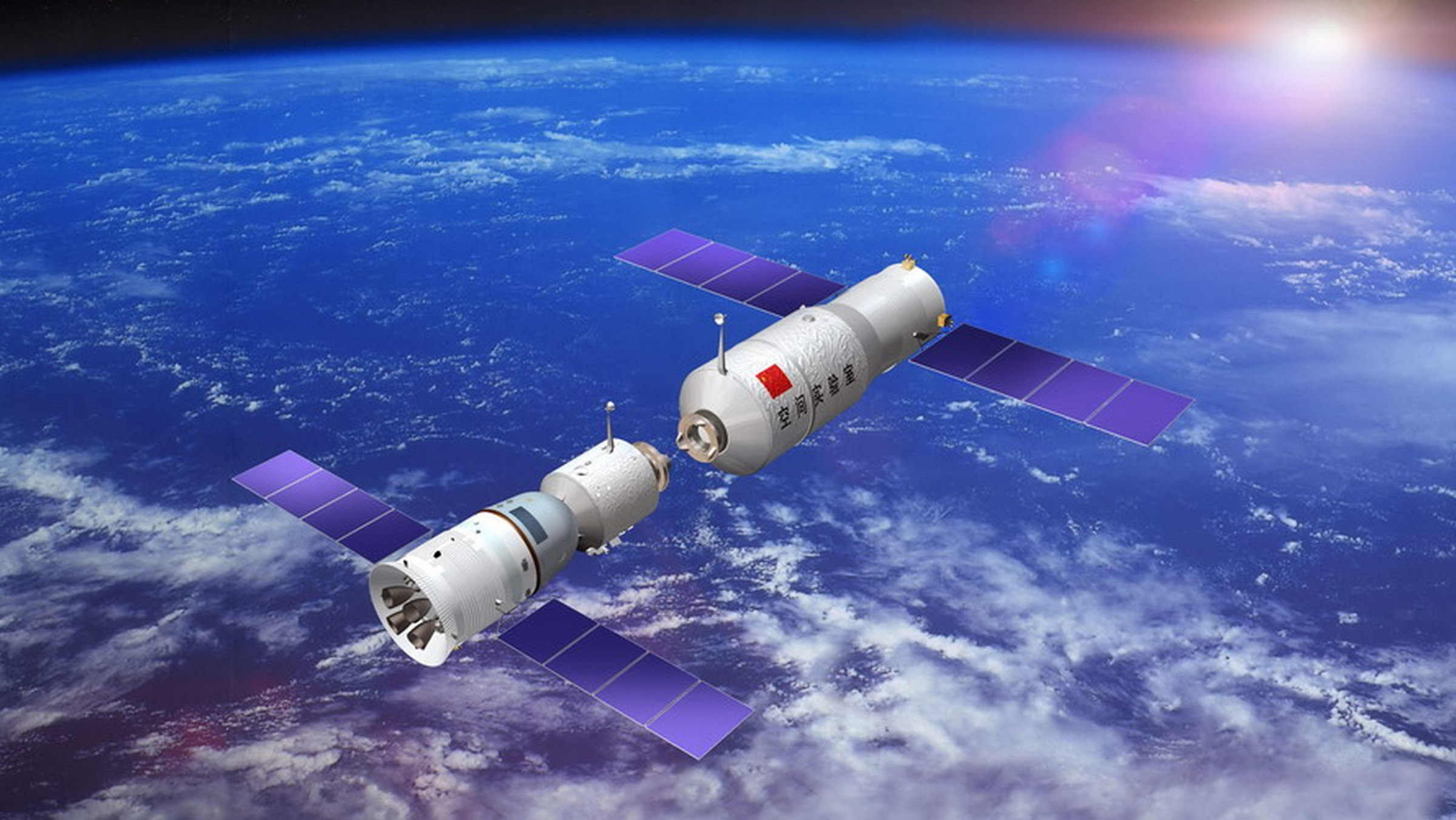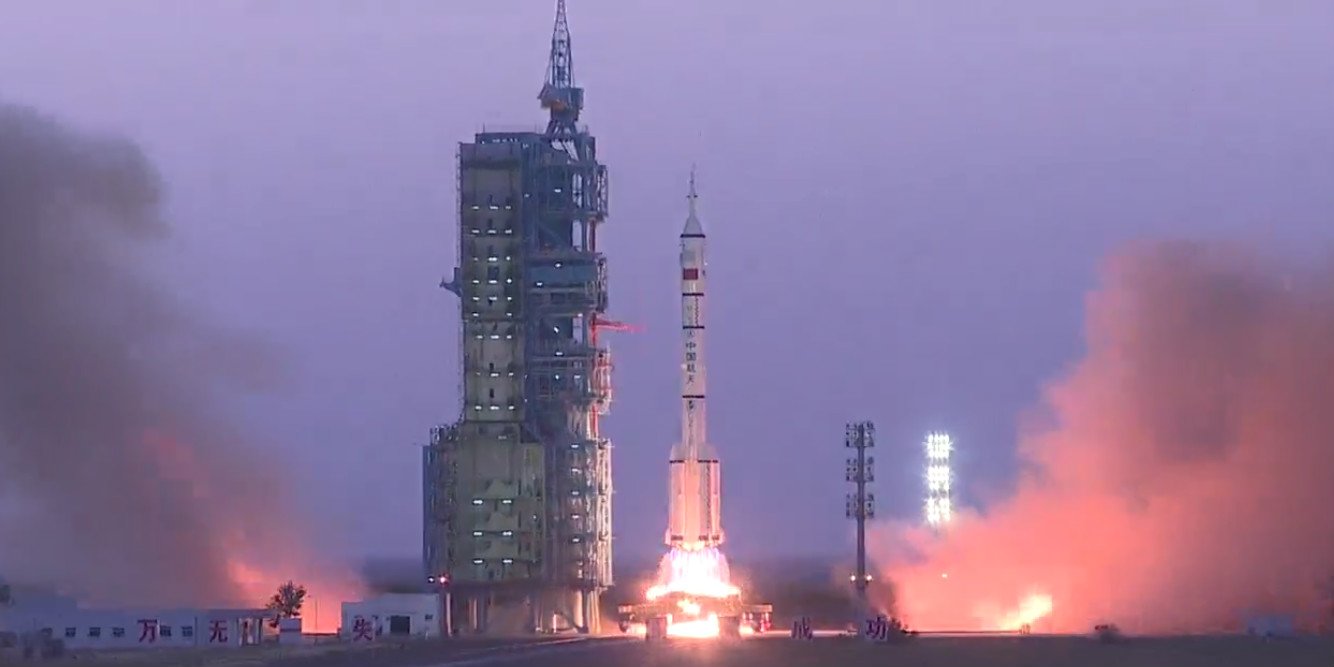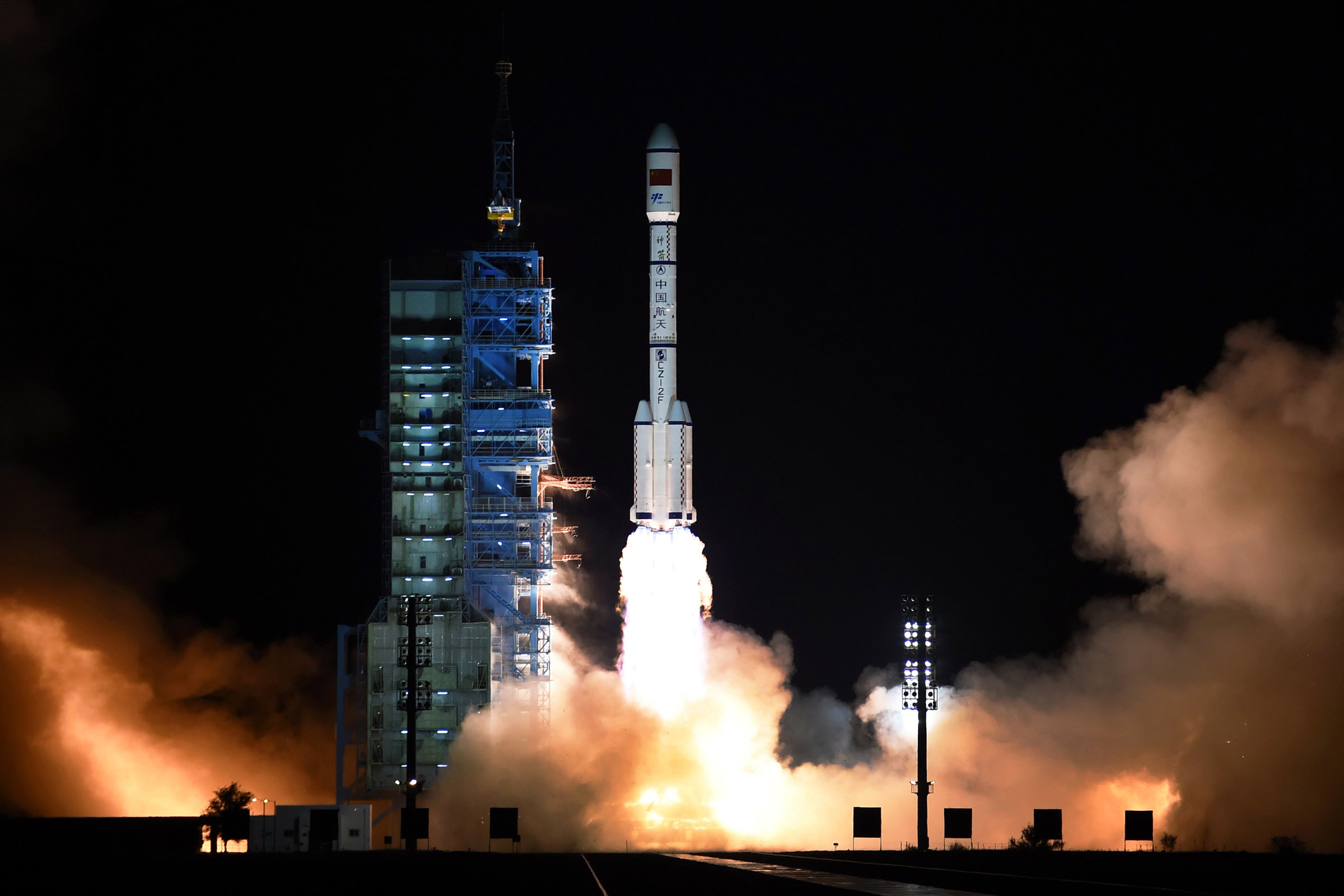Early Wednesday early morning, Shenzhou-11, China’s sixth manned spacecraft docked with the Tiangong-2 space lab.
After changing its orbit five times, the Shenzhou-11 spacecraft arrived 52 kilometers behind the Tiangong-2 space lab. The two then entered a state of automatic control while the spacecraft chased the space lab, and both decelerated for adjustments at four mooring points, which were 5 kilometers, 400 meters, 120 meters, and 30 meters.
WATCH the moment when the Shenzhou-11 docks with the Tiangong-2


Astronauts Jing Haipeng and Chen Dong give a farewell salute only seconds before the Shenzhou-11 launch.
Launch of the Shenzhou-11
During the deceleration process, the two astronauts had to prepare for entering the space lab. When Shenzhou-11 docked with Tiangong-2, the astronauts passed through a one-meter-long passage formed during the docking process to enter the space lab.
“The door of Tiangong is a little bit troublesome. The astronaut needs to lie down their body in the passage to open the door horizontally. The passage is about 1 meter long and about 0.8 meters wide. It is a tube-like passage. The astronaut needs to go through it horizontally and then raise head to open the door,” said Liu Ning, expert of No. 5 Institute of China Aerospace Science and Technology Corporation.
After the spacecraft successfully docked, the two astronauts, Jing Haipeng and Chen Dong, began their month-long stay in the space lab, during which they will conduct a series of experiments.
“The pair will be just above Chinese territory when the spacecraft has the rendezvous with the lab,” said Sun Jun, deputy chief engineer of the center.
WATCH the moment when the Shenzhou-11 astronauts enter the Tiangong-2

Shenzhou-11 was sent into space Monday aboard a Long March-2F Y11 carrier rocket.
On Monday, Chinese President Xi Jinping sent a message of congratulations to all researchers and staff engaged in the mission as well as the astronauts.
Tiangong-2 was launched on Sept. 15 and had arrived at its defined orbit, about 393 kilometers above Earth, for its rendezvous with Shenzhou-11. This will be the height that the future Chinese space station will operate.
With the current U.S.-led International Space Station expected to retire in 2024, China could be the only country with a permanent presence in space, said the National Broadcasting Company (NBC).
China has already signed an agreement with the United Nations opening the Chinese Space Station to receive science payload, astronauts and even modules from countries around the world, the gbtimes reported.
Story compiled with information from Xinhua, CCTV, GB Times, and The Associated Press.
 CGTN America
CGTN America




